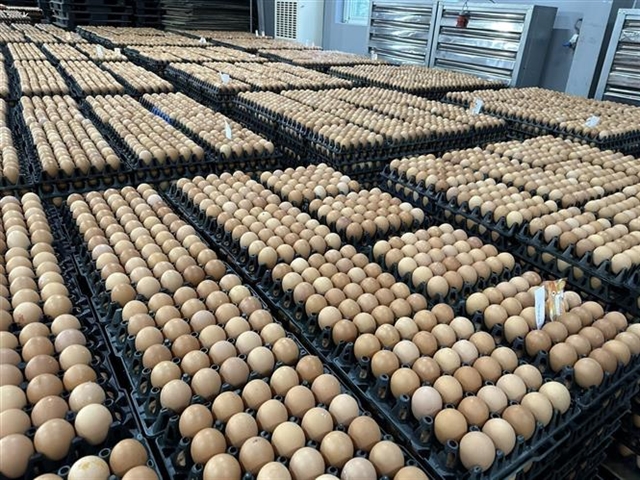 Economy
Economy


|
| The Ministry of Industry and Trade is currently inviting public input on a draft circular that details import quota regulations for salt and poultry eggs for 2025. — VNA/VNS Photo |
HÀ NỘI — The Ministry of Industry and Trade is seeking public feedback on a draft circular outlining import quota regulations for salt and poultry eggs for 2025. The draft specifies the methods for allocating import quotas and identifies the eligible recipients to ensure transparency and efficiency in the import process.
According to the draft, import quotas for salt and poultry eggs will be administered through the issuance of import licences, based on the provisions of Decree No 69/2018/NĐ-CP and Circular No 12/2018/TT-BCT. Quotas for salt imports will be allocated to businesses that directly use salt as a raw material for the production of medicines, medical products, and chemicals. Meanwhile, import quotas for poultry eggs will be allocated to traders who have a demand for these imports.
The Ministry of Industry and Trade will coordinate with the Ministry of Agriculture and Rural Development to determine the timing of the quota allocations for each product. Specifically, the allocation of import quotas for salt used in the production of medicines and medical products will commence once the circular comes into effect.
Previously, the Ministry of Industry and Trade issued Circular No 37/2023/TT-BCT, which regulates import quotas for salt and poultry eggs for 2024. Under this circular, the import quota for poultry eggs, including chicken, duck, goose, and other eggs, is set at 68,670 dozens. The import quota for salt, including both table salt and processed salt, is set at 88,000 tonnes. The method of quota allocation for 2024 is also governed by Decree No 69/2018/NĐ-CP and Circular No 12/2018/TT-BCT.
Circular No 37/2023/TT-BCT is effective from February 6, 2024 to December 31, 2024, while the draft circular for 2025 is still being refined based on feedback from the public and relevant stakeholders.
The regulation and allocation of import quotas for salt and poultry eggs aim not only to control the import market but also to protect the interests of domestic industries, ensuring the sustainable development of the agricultural and food industries. — VNS




